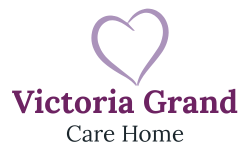Dementia is a tough condition to deal with, both for the person suffering from it and their families. However, music and dementia have an interesting link and it can be very effective in helping people suffering from it. In today's article, we will discuss how music can help people with dementia. What is Dementia? Before …
Dementia is a tough condition to deal with, both for the person suffering from it and their families. However, music and dementia have an interesting link and it can be very effective in helping people suffering from it. In today’s article, we will discuss how music can help people with dementia.
What is Dementia?
Before discussing how music can help people with dementia, it is important to understand what dementia is and how it affects the brain. “Dementia is an umbrella term for a range of progressive conditions that affect the brain”. It is a general term for loss of memory, language, problem-solving and other thinking abilities due to disease or injury. Dementia affects people of all age groups but is most common in older adults.
There are many types of dementia, but the most common form is Alzheimer’s disease. Other types include Lewy body dementia, frontotemporal dementia and vascular dementia.
Dementia can lead to a decline in physical abilities and mobility. People with dementia may have difficulty with daily activities such as bathing, dressing and eating. They may also experience changes in mood and behaviour, which can be a challenge for caregivers and loved ones.
This is an important point to remember. Dementia is not a normal part of ageing, and it should not be viewed as such. Dementia is a serious illness that requires treatment and support. Whilst we do become more confused as we age, dementia is an illness that can make life particularly difficult for elderly people and their families.
How Music Can Help People with Dementia
Research has shown that music can help people with dementia. Music can provide a sense of connection, reduce anxiety and improve mood. Music can also help to stimulate memories and encourage communication. Whilst music cannot cure dementia, it can be a valuable tool in managing the symptoms and making life more enjoyable for people with this condition. It has been shown that music, in particular singing can help people with dementia in several ways as it can help to access parts of the damaged brain that other forms of communication cannot.
Music
Even from a young age, memories are so often linked with music, often with fond memories. Music helps to stimulate the brain and retrieve memories that may have otherwise been lost for some people. This brings joy and happiness to many. Even those with late-stage dementia can often still appreciate music and benefit from listening to music. Musical aptitude is one of the last remaining abilities that is often found in people suffering from dementia.
Music activates the right side of our brains. This part is responsible for creativity and imagination, elements that are often lost among people with dementia. Furthermore, as listening to music requires little effort and processing, it is a great way to stimulate the mind easily.
Pairing music with daily activities such as dressing, bathing and even walking, helps to ignite a memory. For example, you might want to play music in the background while you are helping an elderly loved one bathe. This can help to stimulate their memory and provide a more enjoyable experience. You could also try singing along with them as they bathe – this is a great way to connect and encourage communication. Similarly, playing music while someone is walking can help to keep them focused and on track. It can also provide a sense of rhythm and stimulation. If you are walking with an elderly loved one, try choosing music that they will enjoy and sing along to together!
In addition, music can provide a sense of connection and social interaction for those with dementia. It can also help to reduce anxiety and improve mood.
Singing
Singing, along with music, has also been found to be a great way of engaging your brain. When we sign aloud, we not only exercise the lungs and vocal cords, but also engages the brain in several ways. When you sing, you have to remember the words, the melody and the rhythm. This involves both sides of the brain working together and helps to improve memory and cognitive function. Singing also helps to increase focus and concentration. Therefore, music can help people with dementia through singing as it is incredibly effective at stimulating the brain in ways that we cannot through regular communication.
Music Therapies
There are many ways to use music with people with dementia. Music therapy uses music to achieve specific goals, such as improving communication or managing anxiety. Music groups are another option, where people with dementia can socialise and enjoy music together. There is also music listening, where people with dementia can relax and enjoy music in a calm setting.
The important thing to remember is that everyone is different and will respond to music in different ways. It is important to find music that your loved one enjoys and that has personal meaning for them. If you are unsure where to start, there are many music therapists and organisations that can help you to choose the right music for your loved one.
Music at The Victoria Grand Care Home
At The Victoria Grand Care Home, we understand that music can help people with dementia. So, we regularly welcome performers and singers to our care home to entertain our residents and staff. We know that music helps people with dementia, but it provides great entertainment for everyone within our home. Watching a performance together helps us to create the warm and friendly environment that we are so proud of at The Victoria Grand. Watching performances and listening to music provides our residents and staff alike to bond with each other over a shared experience. We believe that this is very important in helping us to create strong interpersonal relationships and therefore enhance the level of care we provide.
If you would like to learn more about how music can help people with dementia or you would like to enquire about our residential and respite services, explore our website or contact our friendly team today on 01903 248048 or email us here.



